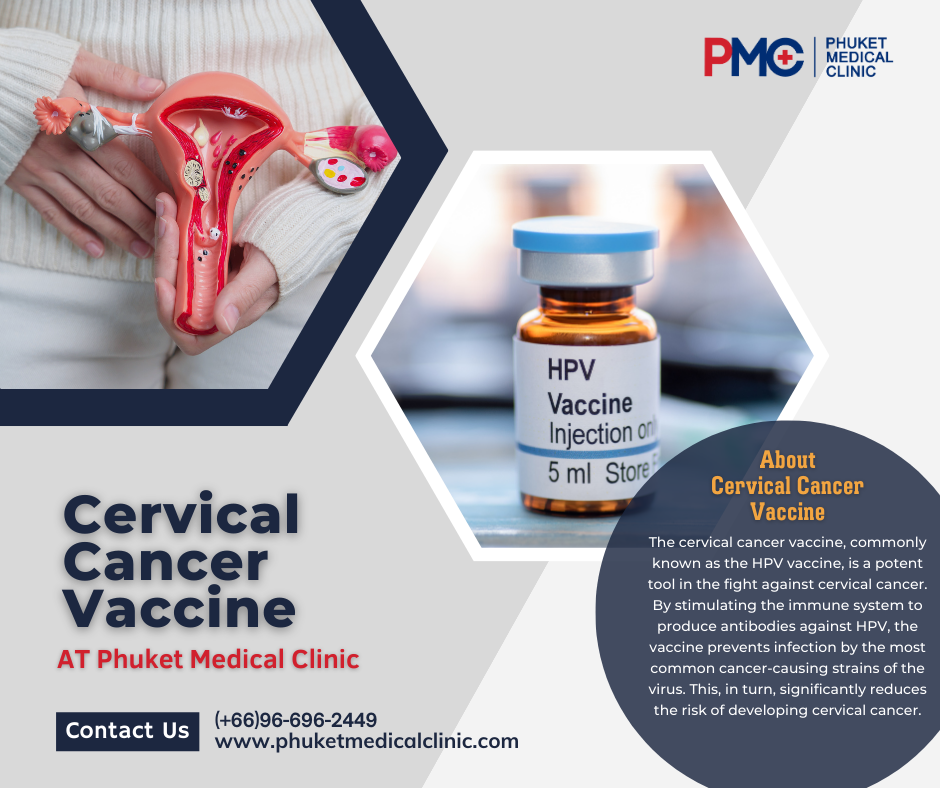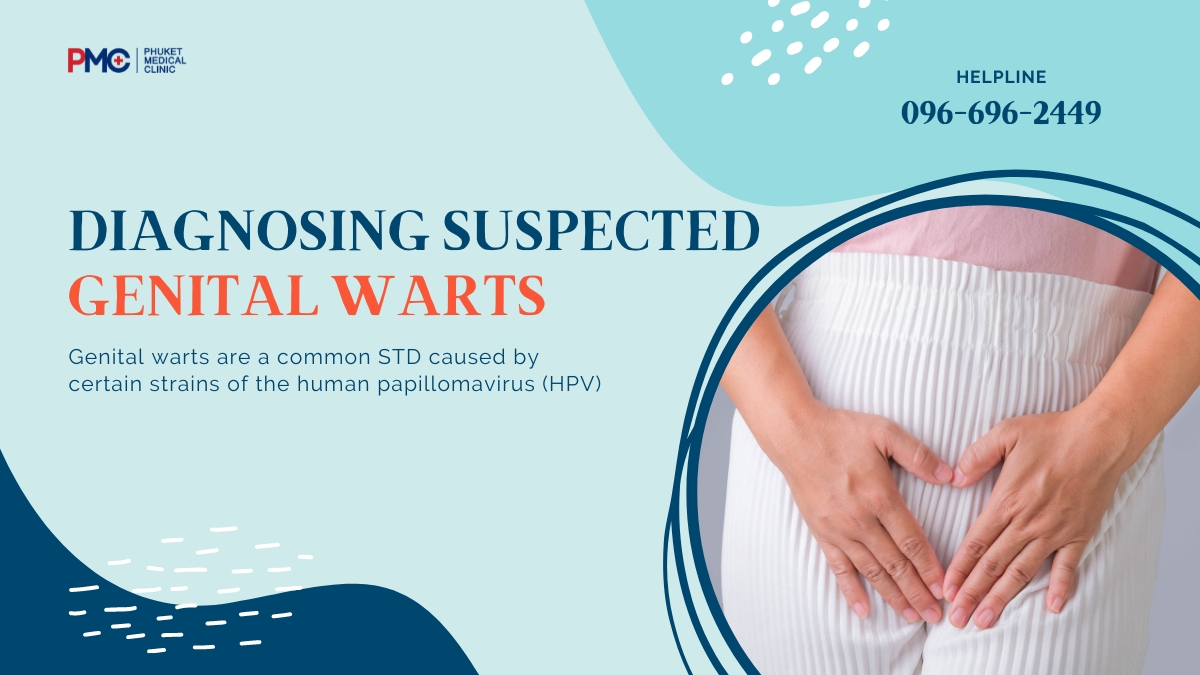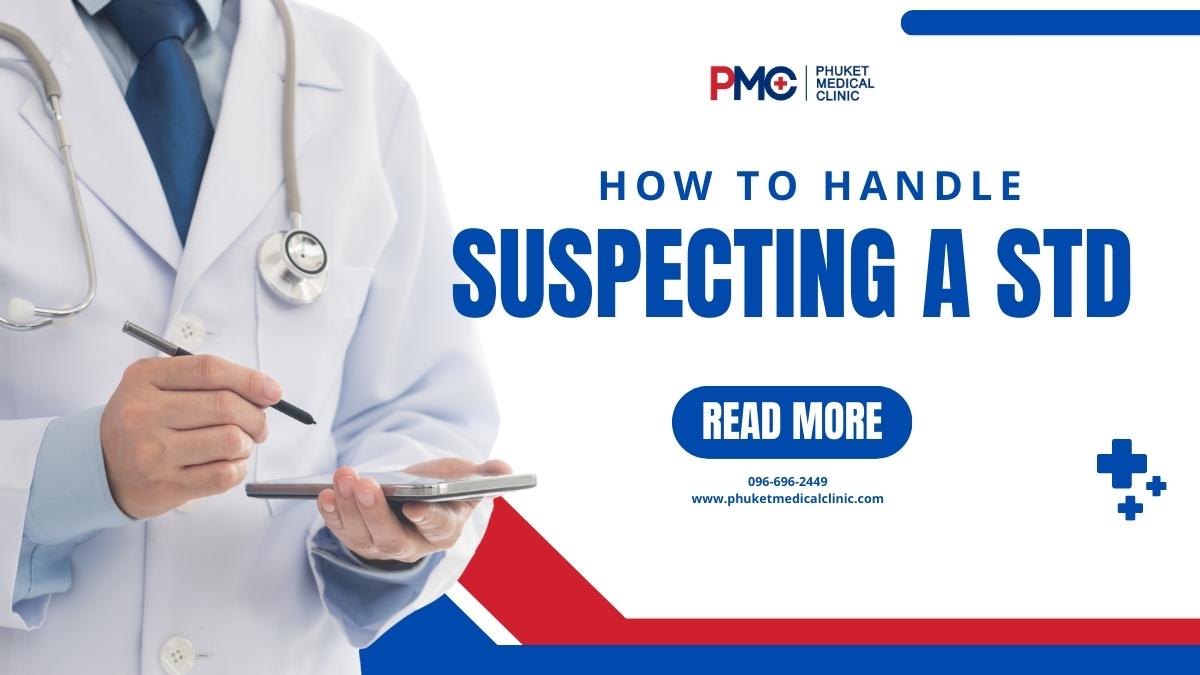Cervical cancer is a significant health concern for women globally, with over half a million new cases diagnosed each year. However, the development of cervical cancer vaccines has revolutionized preventive medicine. In this article, we delve into the importance of the cervical cancer vaccine, its effectiveness, and why it should be a cornerstone of public health initiatives.
Understanding HPV: Symptoms, Risks and Prevention
Sexually transmitted diseases (STDs) pose significant health risks, and one of the most common viral STDs is Human Papillomavirus (HPV). In this article, we will delve into the world of HPV, exploring its causes, symptoms, risks, and most importantly, how to prevent it.
What is HPV?
Human Papillomavirus (HPV) is a group of viruses that can infect various parts of the body, primarily the genital and oral areas. HPV is incredibly common, and most sexually active individuals will contract it at some point in their lives. While many HPV infections clear up on their own, some can lead to serious health issues.
Causes and Transmission
HPV is primarily transmitted through sexual contact, including vaginal, anal, and oral sex. It can be passed even when there are no visible symptoms or signs of infection. Additionally, direct skin-to-skin contact, such as genital-to-genital contact, can spread the virus. Sharing personal items like towels or razors with an infected person may also pose a risk, although it’s less common.

Symptoms of HPV
HPV infections can be asymptomatic, meaning that individuals may not experience any noticeable symptoms. However, when symptoms do occur, they may include:
- Genital Warts: One of the most common signs of an HPV infection is the development of genital warts. These warts can appear as small, cauliflower-like growths on the genital or anal areas.
- Respiratory Papillomatosis: In rare cases, HPV can cause growths in the airways, resulting in a hoarse voice, chronic cough, or breathing difficulties.
- Cancer: Certain strains of HPV can lead to various cancers, including cervical, anal, penile, and throat cancers. Regular screenings and HPV vaccines are essential for early detection and prevention.
Risks Associated with HPV
The presence of HPV can lead to serious health risks, including:
- Cervical Cancer: HPV is the leading cause of cervical cancer. Regular Pap smears and HPV vaccinations can significantly reduce the risk of cervical cancer.
- Other Cancers: As mentioned earlier, HPV is also linked to other cancers, such as anal, penile, and throat cancers.
- Genital Warts: While not life-threatening, genital warts can be uncomfortable and may require treatment.
Prevention of HPV
The best way to protect yourself from HPV is through prevention:
- HPV Vaccination: Vaccines like Gardasil 9 and Cervarix are available to protect against the most common cancer-causing HPV strains. These vaccines are typically recommended for adolescents and young adults.
- Safe Sex Practices: Consistently using condoms during sexual activity can reduce the risk of HPV transmission, although they do not provide complete protection.
- Regular Screenings: Women should undergo regular Pap smears to detect cervical changes early. HPV tests may also be recommended in some cases.
- Limit Sexual Partners: Reducing the number of sexual partners can lower your risk of contracting HPV and other STDs.
- Open Communication: Discuss your sexual health and history with your partner(s) to make informed decisions about protection and testing.
Human Papillomavirus (HPV) is a common and potentially serious sexually transmitted infection. Understanding its causes, symptoms, and associated risks is crucial for maintaining your sexual health. By taking proactive steps like getting vaccinated and practicing safe sex, you can significantly reduce the risk of HPV infection and its potential consequences. Regular check-ups and open communication with your healthcare provider can further ensure your well-being.
STIs Testing & Treatment at Phuket Medical Clinic
Phuket Medical Clinic : Close, Expert Care. Dedicated Medical Professionals and Skilled Team providing Consultation and Treatment. Walk-in or Scheduled Appointments for Convenient and Efficient Services.
Book an appointment online : https://phuketmedicalclinic.youcanbook.me
Daily Open 🕙 10:00-18:00
Contact number ☎️ 096-696-2449
Line id : @pmcphuket or https://lin.ee/R1TKRDo
Map 📌https://goo.gl/maps/xu45eTQUTjgpukJa7
Website 🌐https://phuketmedicalclinic.com
Feel free to consult with a doctor or ask further questions anytime.
Inbox : m.me/100483916443107
#healthcareclinic #คลินิกภูเก็ต
Phuket #Clinic #ภูเก็ตเมดิคอลคลินิก
#Phuketmedicalclinic
Understanding and Preventing Popular Sexually transmitted infections (STIs)
Sexually transmitted infections (STIs) remain a significant public health concern worldwide, affecting millions of people each year. These infections can have serious consequences for individuals’ health and wellbeing, making it crucial to understand the most common STIs and take proactive measures to prevent their transmission. In this article, we will explore some of the most popular infectious diseases that are transmitted through sexual contact and discuss ways to protect yourself and your partners.
The Benefits of Gardasil 9 and Gardasil 4 to protect against HPV
In the realm of healthcare, advancements in vaccines have played a pivotal role in reducing the prevalence of several life-threatening diseases. Gardasil 9 and Gardasil 4 are two such vaccines that have garnered attention for their remarkable contributions to public health. In this article, we will delve into the details of these vaccines, discussing their purpose, effectiveness, and importance in preventing certain types of cancers and infections.
Diagnosing Suspected Genital Warts
Genital warts are a common sexually transmitted infection caused by certain strains of the human papillomavirus (HPV). These small, flesh-colored or grayish growths appear on the genital area and can cause discomfort, itching, and pain. Genital warts are highly contagious and can be transmitted through sexual contact. Early detection and treatment are crucial for managing the infection and reducing the risk of transmission. In some cases, genital warts may resolve on their own, but medical intervention is often required. Effective prevention methods, such as vaccination and practicing safe sex, can significantly reduce the risk of contracting genital warts. Regular screenings and open communication with healthcare professionals are essential for timely diagnosis and appropriate management.
How to Handle Suspecting a STD?
Early detection STD and treatment are paramount in improving health outcomes and saving lives. Detecting medical conditions at an early stage allows for timely intervention, preventing the progression of diseases and minimizing potential complications. This approach significantly increases the effectiveness of treatments, reducing the need for more invasive and costly procedures later on. Additionally, early detection often provides a broader range of treatment options, enhancing the likelihood of successful outcomes. Prioritizing early detection empowers individuals to take proactive control of their health, promoting a healthier population overall and easing the burden on healthcare systems. Ultimately, it underscores the fundamental principle that prevention is better than cure.
Symptoms of HPV in Men and Women
Human papillomavirus (HPV) is a highly prevalent sexually transmitted infection affecting both men and women. It is one of the most common viral infections globally. HPV infections are primarily transmitted through sexual contact, including vaginal, anal, and oral sex. The prevalence of HPV varies across different populations and age groups. In many cases, the infection resolves on its own without causing any symptoms or complications. However, persistent HPV infections can lead to various health issues, including genital warts and certain types of cancers, such as cervical, anal, and oropharyngeal cancer. Vaccination against HPV has been proven to be effective in reducing the incidence of HPV-related diseases, highlighting the importance of prevention and early detection. Regular screenings and safe sexual practices are crucial in managing the prevalence of HPV in both men and women.






